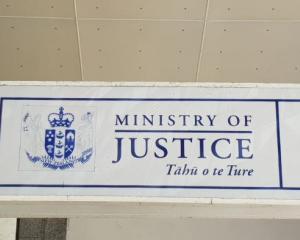
Council-owned Red Bus Ltd was sold to local bus company Ritchies Transport last month. Photo: Environment Canterbury
In early May, city councillors agreed to sell the company in a meeting held behind closed doors. Last month, the company was sold to local company Ritchies Transport for an undisclosed fee with 63 staff losing their jobs.
How city councillors had voted on the matter had been withheld from the public eye up until earlier this week when the city council released the voting records.
Records show Mayor Lianne Dalziel and councillors Catherine Chu, James Daniels, Mike Davidson, James Gough, Aaron Keown, Sam MacDonald, Phil Mauger, Tim Scandrett and Sara Templeton supported the company being sold.
The council's contingency of left-leaning The People's Choice members which include Deputy Mayor Andrew Turner and councillors Jimmy Chen, Melanie Coker, Pauline Cotter, Anne Galloway, Yani Johanson and Jake McLellan all voted against this but failed to form a majority, leading to the council recommending the sale of the company.
The decision to sell the company came after it lost a third of its bus routes, going from having 30 per cent of all routes to 20 per cent.
In the previous financial year, Red Bus had run at a loss of $30,000, the period before that the company recorded a loss of $5.3 million.
However, Johanson thought there was still value in the city council retaining ownership of the company.
"Since the decision was made to sell, Environment Canterbury increased the frequency of bus services on the key contract route and has approved the significant investment case in public transport. This business case shows a massive increase in the operational funding for bus contracts," he said.

James Gough
"The only reason you would want to keep the company would be if you had no brain or no regard for ratepayers' money," he said.
"It did not make sense for the company to be publicly owned because the reality was that it was going to cost ratepayers millions of dollars to prop it up all while not achieving strategic objectives."
Dalziel echoed Gough's comments.
"From a technical point of view, Red Bus is not a strategic asset and doesn’t deliver any of the council’s levels of service. It’s a competitor in a market that I don’t think is in the interests of the city," she said.
Every single councillor affiliated with The People's Choice, apart from the group's caucus leader Turner, also voted for the potential sale of the company to be publicly consulted on.
Turner did not respond to requests for comment from The Star.
McLellan thought the public deserved some kind of input into what he saw as a substantial decision.
"This is an asset that has been built up over generations by the people of Christchurch so it is really not ours to sell and it is certainly not ours to sell without letting the public know."

Lianne Dalziel
Templeton said councillors had also received clear advice that putting additional information around the company's situation into the public arena would have put it at risk.
However, McLellan said these arguments lacked substance after the sale of the company was made public knowledge the day after the council's secret meeting.
Former chief executive of the council-owned company, Paul McNoe, resigned the day after the meeting was held.
The day of his resignation he sent an email to staff claiming the council had recommended the potential sale of the company which was leaked to the media and relayed to the public.
"What we are seeing from councillors is that when decisions are tough they don't like talking to the public about it," McLellan said.
He said the group understood commercially sensitive information would have to be kept under wraps but did not see why a conversation with the public around how they felt about it being sold could not take place.













